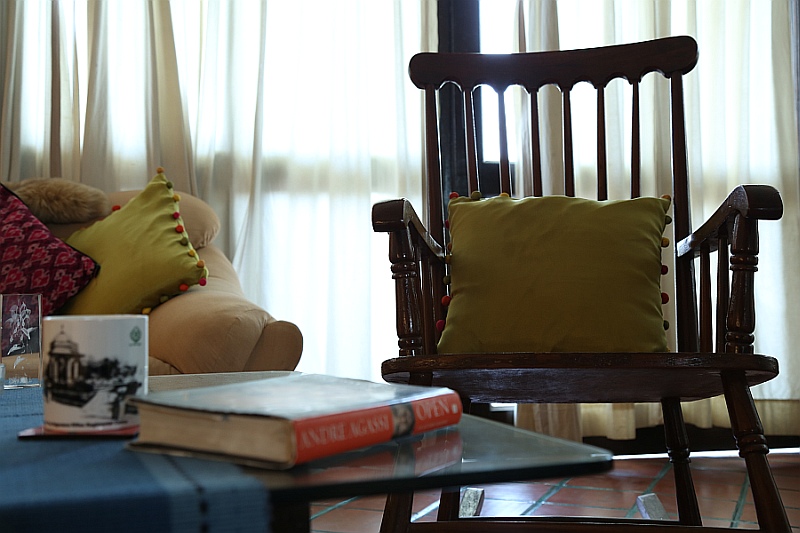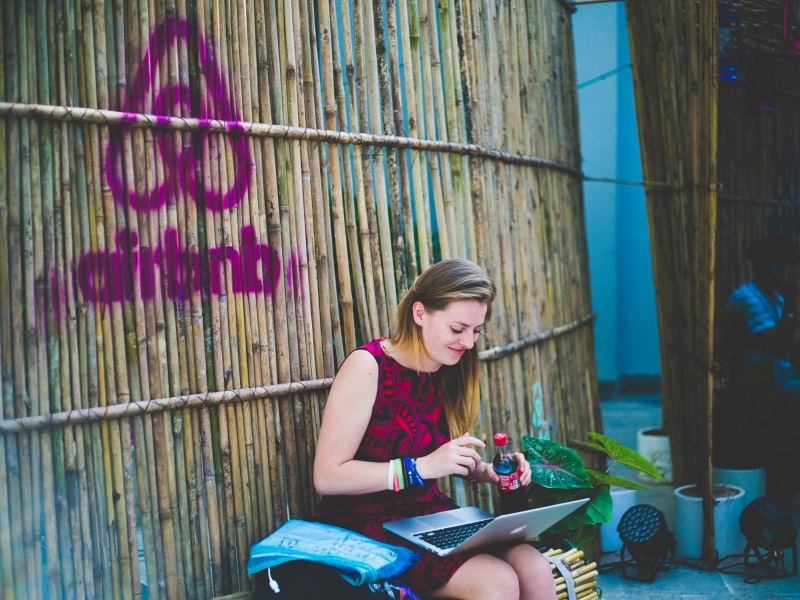Airbnb has been catching on in India, and more and more people are
starting to use it as an alternative to hotels. It's a good way to make
some extra cash if you have room to spare, and if you're traveling on a
budget, there's big savings there. Airbnb has safety measures in place
to ensure that you can travel (or rent out your room) safely and
smoothly, but that being said, there have been instances off and on
around the world where things got a little scary.
Whether
you're a host or a guest, it's best to remember that at the end of the
day, Airbnb isn't a professional hotel chain, and there are some things
you should keep in mind to ensure that you have a good stay.
1. Get verified guest profiles
Airbnb
approves guests once they have all their credentials - email, phone
numbers and sometimes photos in place. The same is true for the rooms
they list. This means that when you're booking a room, you should make
sure that all the credentials and ratings are in place. And if you're
the host, you need to do the same. You could also interact with the
guests before they visit and see how comfortable you would be hosting
them. A simple search of Google, Facebook, and Twitter could also be
valuable; social media stalking is alright when your safety is in
question, and this applies whether you're a host or a guest.
2. Emergency contacts
For
a host, this is simple - have all the emergency details in place so
that if a guest has a heart attack on your dinner table, you can get
help rushing in your direction in moments. Guests should also try and
make sure they have all the emergency contacts they need.

If
you're traveling to a remote location, having someone around in case of
an emergency is going to be difficult, but make the effort. Get the
details for the local police, and for anyone around you that can help
you out. Airbnb also has a 24 hour support hotline that you can use, but
you should have your own plan B and plan C in place too.
3. Money always turns the table around
One
of the good thing about Airbnb is that it handles all the money being
paid from the guests to the hosts, but that just covers the cost of your
stay. If you're a host who charges extra for using the power backup, or
offers meals on a payable basis, discuss this with the guest before
hand. And if you're staying with someone and know you'll need something -
let the host know beforehand, and discuss anything money-related well
before you show up in person.
A small disagreement over
money can become a harrowing experience in the wrong circumstances,
regardless of which side of the equation you're on, so having all these
issues worked out beforehand will help both guests and hosts.
4. Keep communication clear
A
related point to the previous one - keeping a steady stream of
communication up between the guest and the host, up to and even after,
arriving at the room is a good idea. Every house has its own rules -
whether it's your own place, or someone else's. If you're looking for a
place to party the weekend away and have friends over with paper plates
and bottles everywhere - ask beforehand! We've come across many listings
on Airbnb that describe themselves as party friendly, but this isn't
the kind of thing you want to spring on a host at the last minute.

Know
the house rules and respect them. Ask if you can use the groceries and
towels instead of assuming. And if you're a host, and have any specific
requirements that might not be common? Tell the guest before confirming
the booking. You want people who will turn the lights off at 11? Make
sure they know before committing their money.
5. Back up plan B and C
Make
sure you've researched a couple of backup hotels you can shift to if
you need to, that fit in your budget and aren't very far from where
you're staying. You might never need to use them, but knowing that the
option is there will make it a lot easier to leave a bad room.
Figure
out transport as well, and make sure you're not relying on just one
possible solution. If you're the host and you find yourself in a
difficult situation, contact Airbnb right away, and make sure you can
contact the police and other emergency support at all times.
 OpenAI's Head of Trust and Safety Resigns Amid Growing Job Pressure Over Family Life21 July 2023
OpenAI's Head of Trust and Safety Resigns Amid Growing Job Pressure Over Family Life21 July 2023 Instagram, TikTok and Twitter Among 19 Tech Giants Set to Face Stricter EU Online Content Rules26 April 2023
Instagram, TikTok and Twitter Among 19 Tech Giants Set to Face Stricter EU Online Content Rules26 April 2023 Airbnb, Rivals to Share Bookings Data With Authorities Under Proposed EU Rules, European Commission Says7 November 2022
Airbnb, Rivals to Share Bookings Data With Authorities Under Proposed EU Rules, European Commission Says7 November 2022 EU Said to Draft Propose Rules for Airbnb, Rental Firms to Share Data With Authorities Next Week3 November 2022
EU Said to Draft Propose Rules for Airbnb, Rental Firms to Share Data With Authorities Next Week3 November 2022 Tesla Appoints Airbnb Co-Founder Joseph Gebbia to Board Following US SEC Complaint by Shareholder Body29 September 2022
Tesla Appoints Airbnb Co-Founder Joseph Gebbia to Board Following US SEC Complaint by Shareholder Body29 September 2022

![[Sponsored] Samsung Galaxy Tab S10 FE+: A Game-Changer for Students](https://c.ndtvimg.com/2025-05/hkk372hk_image_160x120_03_May_25.png?downsize=180:*)


![Gadgets 360 With Technical Guruji: Ask TG [May 3, 2025]](https://c.ndtvimg.com/2025-05/ths1m03g_ask-tg_160x120_03_May_25.jpg?downsize=180:*)









